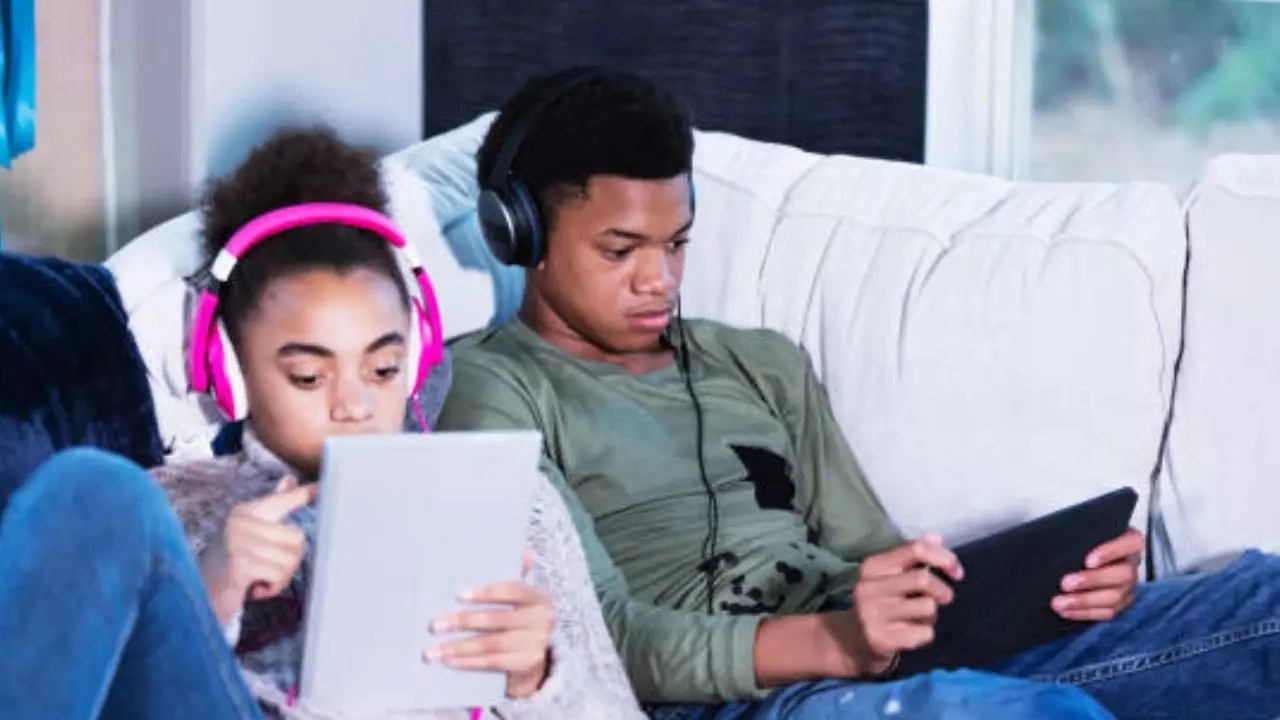News
Survey Finds Half Of US Teens Spend Over Four Hours Daily On Screens

Survey Finds Half Of US Teens Spend Over Four Hours Daily On Screens (Image Credits: iStock)
A new survey reveals that half of young Americans aged 12 to 17 spend at least four hours daily on screens, whether on smartphones, computers, or televisions. Conducted by the U.S. Centers for Disease Control and Prevention (CDC), the survey highlights the growing integration of technology in teens' lives, which has led to a steady rise in daily screen time across the United States.
However, the impact of prolonged screen exposure may not be entirely positive. The survey found that teens spending four or more hours per day on screens reported significantly higher levels of anxiety and depression. Specifically, around 27 per cent of these teens admitted experiencing anxiety within the previous two weeks, compared to just 12.3 per cent among those with less screen time. Similarly, self-reported depression was notably more prevalent among heavy screen users, with 26 per cent indicating depressive symptoms, compared to only 9.5 per cent of teens who spent fewer hours on screens.
The CDC survey, covering data from mid-2021 to the end of 2023, also highlighted trends in screen usage based on age, gender, income, and location. Although gender differences in screen time were minimal—48 per cent of boys and 52.5 per cent of girls spent four or more hours daily on screens—age played a role. Among younger teens (ages 12 to 14), 45.6 per cent reported high screen time, which increased to 55 per cent for those aged 15 to 17. Notably, only about 27 per cent of teens reported using screens for two hours or less each day.
Interestingly, family income did not appear to influence the amount of time teens spent on screens. However, location did make a difference, as urban teens were more likely to engage in high screen use compared to rural teens, with rates of 51.4 per cent and 43.3 per cent, respectively.
Amanda Ng, a researcher from the CDC's National Center for Health Statistics and lead author of the report, noted that prior studies have associated high screen time with adverse health outcomes. Excessive screen time has been linked to poor sleep patterns, increased fatigue, and symptoms of anxiety and depression. The CDC team emphasized that, while technology is a staple in modern teenage life, understanding its psychological impact is essential for guiding healthier screen habits among young people.
This report was published on October 30 as an NCHS Data Brief, shedding light on how daily screen habits might be influencing the mental well-being of American teens.
Get Latest News Live on Times Now along with Breaking News and Top Headlines from Mental Health, Health and around the world.
Our Blogs
Our Recent News

Why Does Running Outdoors Feel Harder Than On A Treadmill?
While running inside and outside both have their own benefits and drawbacks, there’s no denying that...

California Case Is the First Confirmed H5N1 Bird Flu Infection in a US Child
The child attends daycare and lives in Alameda County, which includes Oakland and surrounding commun...

Chinese Scientists Report 'Promising Results' From Novel Alzheimer's Surgery; Here's How
The LVA surgery was first conducted on a 76-year-old man with moderate Alzheimer’s and subsequently,...

